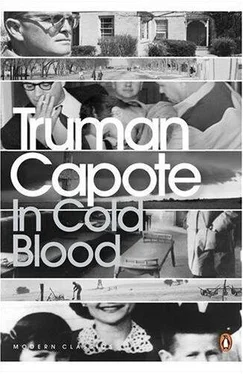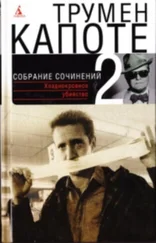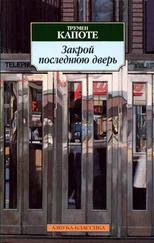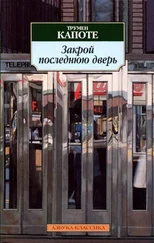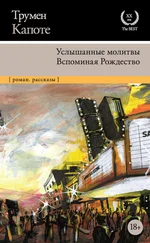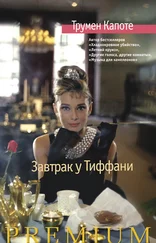Трумен Капоте - In Cold Blood
Здесь есть возможность читать онлайн «Трумен Капоте - In Cold Blood» весь текст электронной книги совершенно бесплатно (целиком полную версию без сокращений). В некоторых случаях можно слушать аудио, скачать через торрент в формате fb2 и присутствует краткое содержание. Год выпуска: 2000, ISBN: 2000, Издательство: Penguin, Жанр: Современная проза, на английском языке. Описание произведения, (предисловие) а так же отзывы посетителей доступны на портале библиотеки ЛибКат.
- Название:In Cold Blood
- Автор:
- Издательство:Penguin
- Жанр:
- Год:2000
- ISBN:0-14-118257-1 / 978-0-14-118257-5
- Рейтинг книги:4 / 5. Голосов: 2
-
Избранное:Добавить в избранное
- Отзывы:
-
Ваша оценка:
- 80
- 1
- 2
- 3
- 4
- 5
In Cold Blood: краткое содержание, описание и аннотация
Предлагаем к чтению аннотацию, описание, краткое содержание или предисловие (зависит от того, что написал сам автор книги «In Cold Blood»). Если вы не нашли необходимую информацию о книге — напишите в комментариях, мы постараемся отыскать её.
In Cold Blood — читать онлайн бесплатно полную книгу (весь текст) целиком
Ниже представлен текст книги, разбитый по страницам. Система сохранения места последней прочитанной страницы, позволяет с удобством читать онлайн бесплатно книгу «In Cold Blood», без необходимости каждый раз заново искать на чём Вы остановились. Поставьте закладку, и сможете в любой момент перейти на страницу, на которой закончили чтение.
Интервал:
Закладка:
Mrs. Johnson was not distressed - and definitely not surprised to learn that the police were once more interested in her brother's activities. What did upset her was the prospect of having guests arrive to find her being questioned by detectives. She said, "No. Nothing. I haven't seen Perry in four years."
"This is a serious matter, Mrs. Johnson," Nye said. "We'd like to talk it over."
Having surrendered, having asked them in and offered them coffee (which was accepted), Mrs. Johnson said, "I haven't seen Perry in four years. Or heard from him since he was paroled. Last summer, when he came out of prison, he visited my father in Reno. In a letter, my father told me he was returning to Atlanta and taking Perry with him. Then he wrote again, I think in September, and he was very angry. He and Perry had quarreled and separated before they reached the border. Perry turned back, my father went on to Alaska alone."
"And he hasn't written you since?"
"No."
"Then it's possible your brother may have joined him recently, within the last month."
"I don't know. I don't care."
"On bad terms?"
"With Perry? Yes. I'm afraid of him."
"But while he was in Lansing you wrote him frequently. Or so the Kansas authorities tell us," Nye said. The second man, Inspector Guthrie seemed content to occupy the sidelines.
"I wanted to help him. I hoped I might change a few of his ideas. Now I know better. The rights of other people mean nothing to Perry. He has no respect for anyone."
"About friends. Do you know of any with whom he might be staying?"
"Joe James," she said, and explained that James was a young Indian logger and fisherman who lived in the forest near Bellingham, Washington. No, she was not personally acquainted with him, but she understood that he and his family were generous people who had often been kind to Perry in the past. The only friend of Perry's she had ever met was a young lady who had appeared on the Johnsons' doorstep in June, 1955, bringing with her a letter from Perry in which he introduced her as his wife.
"He said he was in trouble, and asked if I would take care of his wife until he could send for her. The girl looked twenty; it turned out she was fourteen. And of course she wasn't anyone's wife. But at the time I was taken in. I felt sorry for her, and asked her to stay with us. She did, though not for long. Less than a week. And when she left, she took our suitcases and everything they could hold - most of my clothes and most of my husband's, the silver, even the kitchen clock."
"When this happened, where were you living?"
"Denver."
"Have you ever lived in Fort Scott, Kansas?"
"Never. I've never been to Kansas."
"Have you a sister who lives in Fort Scott?"
"My sister is dead. My only sister."
Nye smiled. He said, "You understand, Mrs. Johnson, we're working on the assumption that your brother will contact you. Write or call. Or come to see you."
"I hope not. As a matter of fact, he doesn't know we've moved. He thinks I'm still in Denver. Please, if you do find him, don't give him my address. I'm afraid."
"When you say that, is it because you think he might harm you? Hurt you physically?"
She considered, and unable to decide, said she didn't know. "But I'm afraid of him. I always have been. He can seem so warm-hearted and sympathetic. Gentle. He cries so easily. Sometimes music sets him off, and when he was a little boy he used to cry because he thought a sunset was beautiful. Or the moon. Oh, he can fool you. He can make you feel so sorry for him - "
The doorbell rang. Mrs. Johnson's reluctance to answer conveyed her dilemma, and Nye (who later wrote of her, "Through-out the interview she remained composed and most gracious. A person of exceptional character") reached for his brown snap-brim. "Sorry to have troubled you, Mrs. Johnson. But if you hear from Perry, we hope you'll have the good sense to call us. Ask for Inspector Guthrie."
After the departure of the detectives, the composure that had impressed Nye faltered; a familiar despair impended. She fought it, delayed its full impact until the party was done and the guests had gone, until she'd fed the children and bathed them and heard their prayers. Then the mood, like the evening ocean fog now clouding the street lamps, closed round her. She had said she was afraid of Perry, and she was, but was it simply Perry she feared, or was it a configuration of which he was part - the terrible destinies that seemed promised the four children of Florence Buckskin and Tex John Smith? The eldest, the brother she loved, had shot himself; Fern had fallen out of a window, or jumped; and Perry was committed to violence, a criminal. So, in a sense, she was the only survivor; and what tormented her was the thought that in time she, too, would be overwhelmed: go mad, or contract an incurable illness, or in a fire lose all she valued - home, husband, children.
Her husband was away on a business trip, and when she was alone, she never thought of having a drink. But tonight she fixed a strong one, then lay down on the living-room couch, a picture album propped against her knees.
A photograph of her father dominated the first page - a studio portrait taken in 1922, the year of his marriage to the young Indian rodeo rider Miss Florence Buckskin. It was a photograph that invariably transfixed Mrs. Johnson. Because of it, she could understand why, when essentially they were so mismatched, her mother had married her father. The young man in the picture exuded virile allure. Everything - the cocky tilt of his ginger-haired head, the squint in his left eye (as though he were sighting a target), the tiny cowboy scarf knotted round his throat - was abundantly attractive. On the whole, Mrs. Johnson's attitude toward her father was ambivalent, but one aspect of him she had always respected - his fortitude. She well knew how eccentric he seemed to others; he seemed so to her, for that matter. All the same, he was "a real man." He did things, did them easily. He could make a tree fall precisely where he wished. He could skin a bear, repair a watch, build a house, bake a cake, darn a sock, or catch a trout with a bent pin and a piece of string. Once he had survived a winter alone in the Alaskan wilderness.
Alone: in Mrs. Johnson's opinion, that was how such men should live. Wives, children, a timid life are not for them. She turned over some pages of childhood snapshots - pictures made in Utah and Nevada and Idaho and Oregon. The rodeo careers of "Tex & Flo" were finished, and the family, living in an old truck, roamed the country hunting work, a hard thing to find in 1933. "Tex John Smith Family picking berries in Oregon, 1933" was the caption under a snapshot of four barefooted children wearing overalls and cranky, uniformly fatigued expressions. Berries or stale bread soaked in sweet condensed milk was often all they had to eat. Barbara Johnson remembered that once the family had lived for days on rotten bananas, and that, as a result, Perry had got colic; he had screamed all night, while Bobo, as Barbara was called, wept for fear he was dying.
Bobo was three years older than Perry, and she adored him; he was her only toy, a doll she scrubbed and combed and kissed and sometimes spanked. Here was a picture of the two together bathing naked in a diamond-watered Colorado creek, the brother, a pot-bellied, sun-blackened cupid, clutching his sister's hand and giggling, as though the tumbling stream contained ghostly tickling fingers. In another snapshot (Mrs. Johnson was unsure, but she thought probably it was taken at a remote Nevada ranch where the family was staying when a final battle between the parents, a terrifying contest in which horsewhips and scalding water and kerosene lamps were used as weapons, had brought the marriage to a stop), she and Perry are astride a pony, their heads are together, their cheeks touch; beyond them dry mountains burn.
Читать дальшеИнтервал:
Закладка:
Похожие книги на «In Cold Blood»
Представляем Вашему вниманию похожие книги на «In Cold Blood» списком для выбора. Мы отобрали схожую по названию и смыслу литературу в надежде предоставить читателям больше вариантов отыскать новые, интересные, ещё непрочитанные произведения.
Обсуждение, отзывы о книге «In Cold Blood» и просто собственные мнения читателей. Оставьте ваши комментарии, напишите, что Вы думаете о произведении, его смысле или главных героях. Укажите что конкретно понравилось, а что нет, и почему Вы так считаете.
